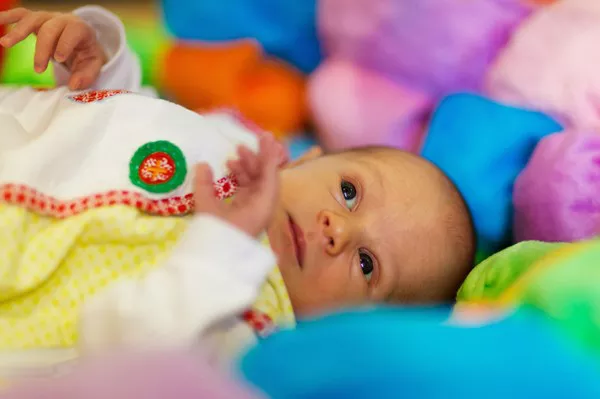Parenthood often leads to an unexpected reimagining of daily life and living spaces, challenging even the most organized among us. Ría Safford, a seasoned home organizer and mother of three from Dallas, has released a valuable resource to assist new parents in managing the inevitable clutter that comes with welcoming a baby into the home. Her latest book, “The Organized Home for New Parents: Create Routine-Ready Spaces for Your Baby’s First Years,” published by Blue Star Press this month, provides a practical guide for parents to regain control of their living spaces, making life with little ones more manageable and visually appealing.
Safford’s journey into home organization began when she left her corporate job to become a full-time mother. Realizing the challenges of maintaining order amidst the chaos of child-rearing, she founded her organizing company. As she admits, “This did not come easy,” underscoring her personal transformation from a naturally messy person to a home organization expert. Her experiences and hard-earned wisdom are the foundation of her newly released, beautifully illustrated book, designed to assist parents with infants and toddlers.
“The Organized Home for New Parents” serves as a friendly guide, derived from Safford’s own mistakes and learning moments. She believes that her book, if available during her early days of parenting, would have substantially reduced the number of disputes with her husband. Among the invaluable suggestions she offers to streamline the challenges of parenting are:
Prepare in Advance: New parents often underestimate the influx of baby-related items into their homes. Safford advises planning ahead to manage the influx of bouncy chairs, sensory toys, cribs, car seats, strollers, diaper bags, clothes, and gifts.
Maintain Nursery Order: To maintain a functional nursery, store only the items required for the baby’s current stage. Separate outgrown baby clothes from those in use and store larger items appropriately.
Efficient Changing Stations: Organize your changing table to make those late-night diaper changes as seamless as possible. Keep essential items like diapers, wipes, a toy for the baby, and a diaper disposal within arm’s reach.
Label and Inventory: Clearly label drawers and shelves, so caregivers can easily locate and put away baby items. Create a “too-small” bin for outgrown clothes, prompting you to store, donate, or pass them on.
Catchall Basket: Keep a large basket in the main living area to gather random baby items, ensuring a tidy living space and maintaining your sanity.
Rotate Toys: Store or give away toys as your child outgrows them. Regularly rotating toys can help reduce clutter and maintain an engaging environment for your child.
Designate Entertainment Centers: Create safe, baby-friendly areas in various rooms to entertain your child while you complete essential tasks. Whether it’s a low cupboard in the kitchen or a bin of toys under the bathroom sink, these setups can be lifesavers.
Encourage Toddler Cleanup: Starting around 16 to 18 months, involve your child in cleanup activities, making it fun and straightforward by incorporating favorite songs or using picture labels on storage bins.
Regular Purging: Continuously adapt your child’s living space as they grow, ensuring that outdated items are removed and replaced with age-appropriate ones. Hanging onto old baby items rarely proves useful and can compromise safety.


